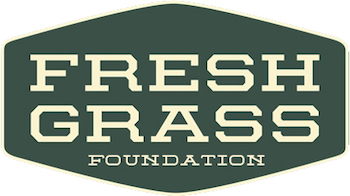Pete Seeger: Folk Singer, Educator, Banjo Player, Activist, Good Person
The first year Folk Alley went to the Newport Folk Festival, we were all really excited to be there among so many fans of our music. I was most looking forward to seeing Pete Seeger perform. When I was a girl, one of the first albums my mother bought for us was Pete’s Folk Songs for Young People – which we played on our portable record player with a stylus the size of a 3-penny nail. At that time, the mid-’60s, the folk revival was being eclipsed by the British Invasion, but Pete’s music stayed with me.
Pete, who died yesterday (Jan. 27) may truly be considered the powerful oak of American folk music. He worked with his father, Charles, and stepmother, Ruth Crawford Seeger, as well as folklorist and archivist Alan Lomax as they gathered and preserved folk songs from rural communities – places where folk music truly drew life from being passed between generations. Pete traveled with Woody Guthrie, singing alongside union workers and learning their stories. He wrote or co-wrote songs – “If I Had a Hammer,” “Where Have All the Flowers Gone,” “Turn, Turn, Turn,” “We Shall Overcome” – that are part of the DNA of the American experience.
And, he shared his music (and himself) with people across the country and around the world. His book How to Play the Five-String Banjo is credited for inspiring many to pick up the instrument, giving it a new life in the folk idiom. After he was blacklisted for being a Communist in the ’50s, Pete toured college campuses, connecting with the next generation one-on-one. Many younger artists – including Arlo Guthrie – looked up to Seeger, who never liked fame and lived out of the limelight in New York State’s Hudson River Valley. He was married to his wife, Toshi, for 70 years (Toshi died in July) and he still performed periodically with his grandson, Tao Rodriguez-Seeger. A three-time Grammy Award-winner, Pete was nominated again this year in the Spoken Word category, but lost out to Stephen Colbert. He was still chopping wood at 94.
As I stood at the back of the Newport crowd, Pete (who had help start the festival with Toshi and George Wein 50 years before) drew the audience – and fellow performers – into one giant sing-along. Thousands of people, good singers and bad, joined together in heartfelt celebration. And, that’s what folk music is all about – sharing our lives through the medium of song. Thank you, Pete! May your legacy last for generations to come and the mighty oak you planted keep us strong!



